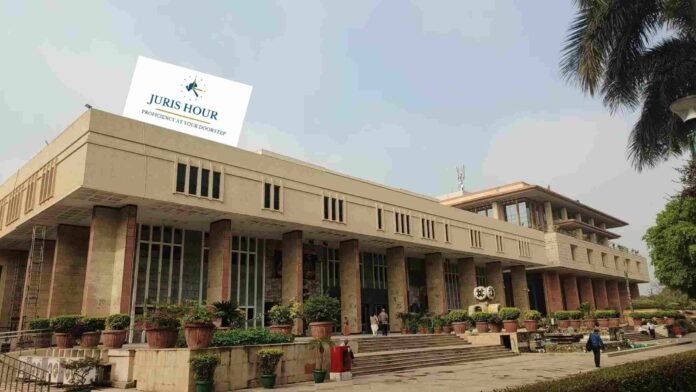The Delhi High Court has declined to interfere with a GST demand order challenged by a taxpayer, ruling that since the validity of key GST notifications extending adjudication time limits under Section 168A of the CGST Act, 2017 is pending before the Supreme Court, the petitioner must instead pursue the appellate remedy.
A Bench of Justice Prathiba M. Singh and Justice Shail Jain passed the ruling while hearing a plea against an August 21, 2024 order issued by the Delhi Sales Tax Officer for FY 2019–20. The petitioner had also assailed the validity of Notification Nos. 09/2023 and 56/2023 (Central and State Tax), alleging that they were issued without the proper recommendation of the GST Council as mandated under Section 168A.
The core controversy revolves around whether the Government can extend limitation periods for GST adjudication by invoking Section 168A without prior recommendation of the GST Council.
The petitioner argued that the impugned notifications — issued to extend deadlines for issuing show-cause notices and completing adjudication for FY 2019–20 — were legally invalid and ultra vires the GST Act.
The Court noted that this precise question is already under the Supreme Court’s consideration in M/s HCC-SEW-MEIL-AAG JV v. Assistant Commissioner of State Tax & Ors. (SLP No. 4240/2025) after conflicting rulings by various High Courts namely Allahabad and Patna High Courts upheld the notifications, Guwahati High Court struck them down, and Telangana High Court expressed reservations without deciding the issue.
The petitioner submitted that it had filed a detailed reply to the show-cause notice dated May 30, 2024, on June 28, 2024, but the adjudicating authority passed the order without considering the reply, thereby violating the principles of natural justice.
The petitioner sought quashing of the demand order as well as the impugned notifications, citing precedents where courts had remanded similar ex parte orders for fresh consideration.
The Delhi High Court observed that in multiple similar petitions concerning the same notifications, it had already adopted a consistent approach where replies were filed and hearings attended, petitioners were directed to file appeals. Where orders were passed ex parte without hearing, matters were remanded for fresh adjudication. Since the petitioner in this case had already filed a reply but not attended the hearing, the Court held that the proper course was to file an appeal instead of invoking writ jurisdiction.
The court directed the petitioner to file an appeal by November 30, 2025, along with the required pre-deposit. The appellate authority was instructed not to dismiss the appeal on limitation grounds and to decide it on merits. The GST department must enable portal access within one week to allow the petitioner to download necessary documents. All further proceedings will remain subject to the Supreme Court’s verdict on the validity of the notifications.
Case Details
Case Title: Enviro Tech Ventures Limited Versus UOI
Case No.: W.P.(C) 15530/2025 & CM APPL. 63498/2025
Date: 10/10/2025
Counsel For Petitioner: Sandeep Chilana & Mr. Priyojeet Chatterjee
Counsel For Respondent: Vaishali Gupta, Adv.
Read More: 100% EOU’s DTA Clearances Eligible for Concessional Duty: CESTAT Quashes Excise Demand, Penalty

